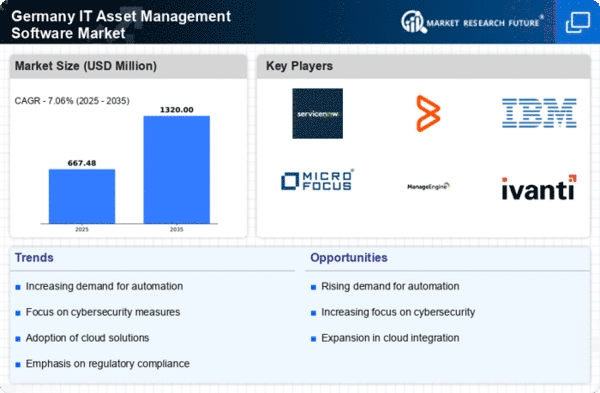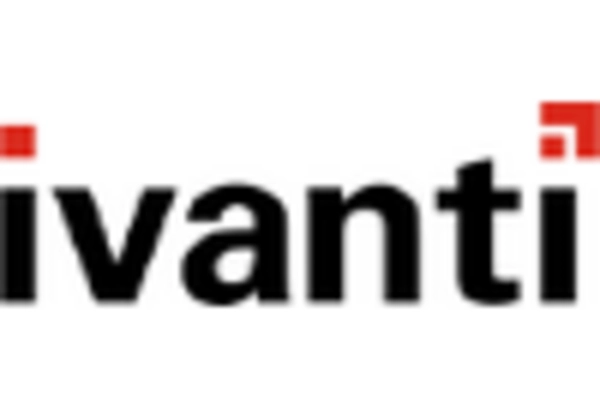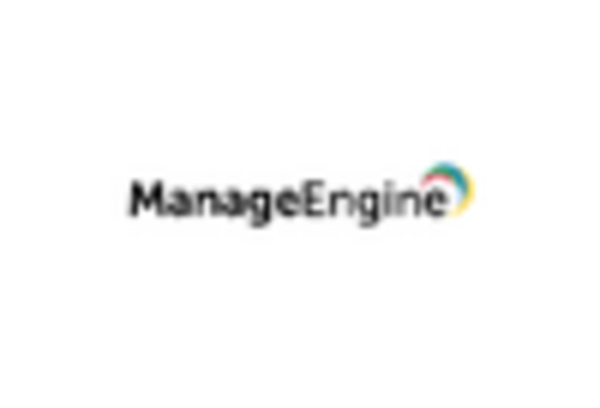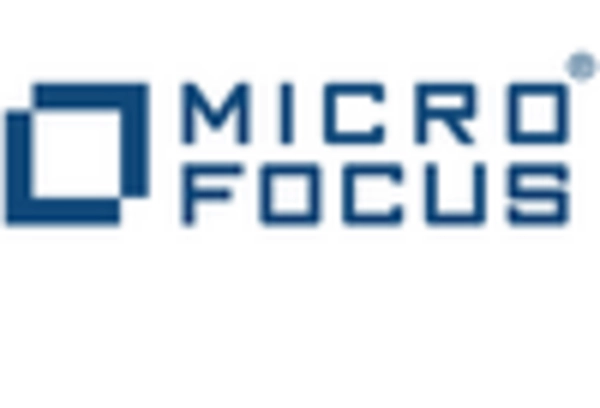Regulatory Compliance Pressures
In Germany, stringent regulatory frameworks compel organizations to adopt robust asset management practices. The it asset-management-software market is significantly influenced by the need to comply with regulations such as the General Data Protection Regulation (GDPR) and the IT Security Act. These regulations necessitate meticulous tracking and management of IT assets to ensure data protection and security. Companies are investing in asset management solutions that facilitate compliance reporting and audits, thereby reducing the risk of penalties. The market is expected to see a surge in demand for software that not only manages assets but also provides compliance features. This regulatory landscape creates a compelling driver for organizations to invest in effective asset management solutions.
Increased Focus on Cost Efficiency
Cost efficiency remains a critical concern for organizations in Germany, influencing their investment decisions in the it asset-management-software market. Companies are increasingly looking for solutions that help them optimize their IT expenditures by providing insights into asset utilization and lifecycle management. By leveraging asset management software, organizations can identify underutilized assets and make informed decisions regarding upgrades or disposals. This focus on cost efficiency is particularly relevant in the current economic climate, where organizations are striving to maximize their return on investment. The IT Asset Management Software Market is likely to benefit from this trend., as businesses seek tools that enhance financial performance through effective asset management.
Shift Towards Remote Work Solutions
The shift towards remote work in Germany has transformed the landscape of IT asset management. Organizations are increasingly adopting flexible work arrangements, necessitating the management of assets across diverse locations. The IT Asset Management Software Market is adapting to this trend by offering solutions that support remote asset tracking and management.. Companies are seeking software that enables them to monitor and manage assets regardless of their physical location, ensuring operational continuity. This shift is likely to drive innovation in asset management solutions, with a focus on remote accessibility and user-friendly interfaces. As remote work becomes a permanent fixture, the demand for effective asset management tools is expected to rise, further propelling market growth.
Rising Demand for IT Asset Visibility
The increasing complexity of IT environments in Germany drives a heightened demand for visibility into IT assets. Organizations are recognizing the necessity of tracking hardware and software assets to optimize resource allocation and reduce costs. The it asset-management-software market is experiencing growth as companies seek solutions that provide real-time insights into asset utilization. According to recent data, the market is projected to grow at a CAGR of 10% over the next five years, indicating a robust demand for effective asset management solutions. This trend is particularly pronounced in sectors such as finance and healthcare, where compliance and operational efficiency are paramount. As organizations strive to maintain competitive advantages, the need for comprehensive asset visibility becomes increasingly critical.
Technological Advancements in Asset Management
Technological advancements are reshaping the it asset-management-software market in Germany. Innovations such as artificial intelligence, machine learning, and the Internet of Things (IoT) are being integrated into asset management solutions, enhancing their capabilities. These technologies enable organizations to automate asset tracking, predictive maintenance, and data analysis, leading to improved operational efficiency. As companies seek to leverage these advancements, the demand for sophisticated asset management software is expected to rise. The market is witnessing a shift towards solutions that not only manage assets but also provide actionable insights through advanced analytics. This trend indicates a growing recognition of the value that technology brings to asset management, potentially transforming how organizations approach their IT assets.
















